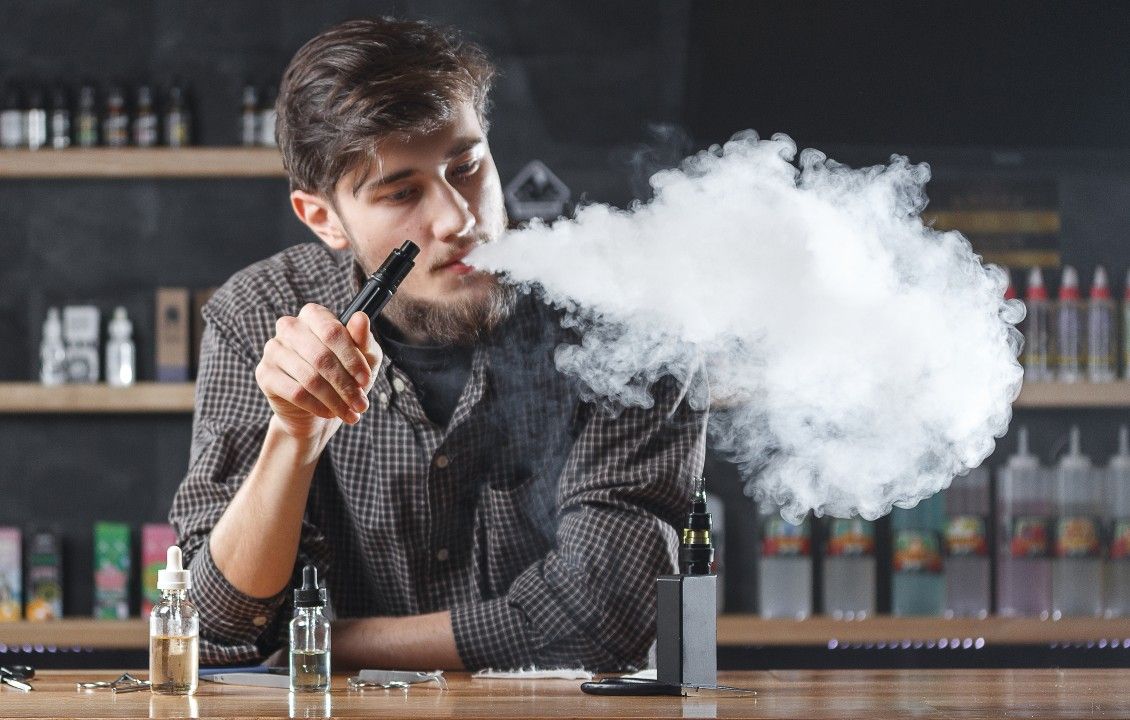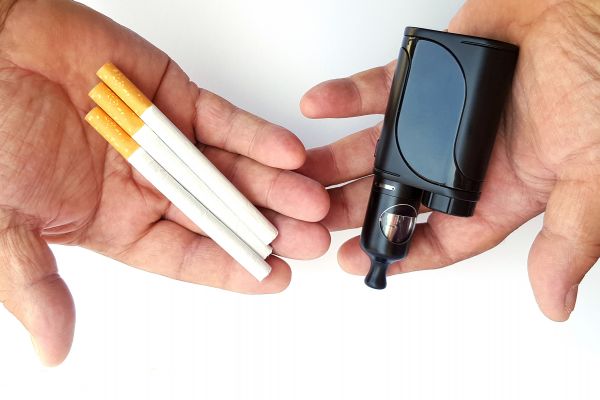In a highly controversial move, the Food and Drug Administration (FDA) recently authorized an electronic cigarette (e-cigarette) for the first time, marking a significant shift in one of the longest public health debates in history. The marketing of Vuse Solo, a rechargeable, cigarette-shaped electronic device manufactured by R.J. Reynolds, along with its tobacco-flavored cartridge, was permitted by the FDA in October 2021, although the company’s request to market several other flavored cartridges was denied.
Earlier that year, the agency rejected millions of applications for various other e-cigarette brands because of concerns about the appeal of these products to minors, particularly sweet and candy-flavored vaping cartridges that could appeal to teens.
E-cigarettes are now more popular among teens than traditional combustible cigarettes, and more than 2 million U.S. teens currently vape. Despite this alarming rise in vaping practices among this young and vulnerable population, the FDA decided the data provided by R.J. Reynolds demonstrated that its e-cigarette and tobacco-flavored products could help adult smokers who switch to these products either completely or significantly reduce their use of traditional combustible cigarettes.
“Companies that manufacture or sell e-cigarettes must present evidence to the FDA that their product is ‘appropriate for the protection of the public health,' but sound data is at the heart of making that determination,” says Andrew Hyland, PhD, Chair of the Department of Health Behavior at Roswell Park Comprehensive Cancer Center. “Generally, products that are only used by adult current and former cigarette smokers trying to avoid combustible cigarettes, and not by young people or people who have never used nicotine products before, have the potential to improve the health of a population.”
Perhaps because of this historic move by the FDA, e-cigarettes have recently gained a lot of attention as an alternative to smoking traditional cigarettes. Recent research from Roswell Park suggests that for smokers who initially say they will never quit smoking, vaping can actually improve the odds of quitting combustible cigarettes. In a study coordinated by Dr. Hyland, the research team found that in a group of heavy smokers who initially had no plans to quit smoking, those who were vaping daily at the end of the study period were more likely to quit smoking than those who didn’t vape at all (or only vaped occasionally).
Although the FDA now permits the sale of these e-cigarette products in the U.S., it does not mean these products are safe, nor does it mean they are effective when trying to quit smoking. “We know that e-cigarettes have fewer toxins than traditional cigarettes, but we can’t say that e-cigarettes are less harmful than traditional cigarettes, as we don’t know whether that translates to a reduced risk of cancer or other health problems,” says Dr. Hyland. “We know for a fact that cigarette smoking is incredibly harmful, and we know that 30% of cancer-related deaths are caused by cigarette smoking.”
Smoking causes lung cancer, which kills more people each year than the next three most common cancers combined. If you want to quit smoking, there are a host of FDA-approved medications that are proven safe and effective, including over-the-counter nicotine patches, gum, pouches, lozenges, or prescription nicotine nasal sprays or inhalers. Your doctor can prescribe medications that don’t contain nicotine, such as bupropion (Zyban) or varenicline (Chantix).
Ready to quit?
Call the New York State Smokers’ Quitline (1-866-NY-QUITS) or visit www.nysmokefree.com, a free service that provides free information and coaching on a variety of issues related to quitting tobacco, including developing a quit plan that’s right for you and starter kits of nicotine replacement medications.


